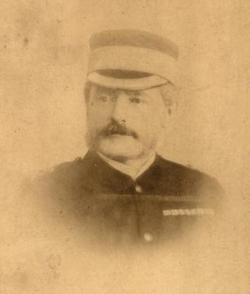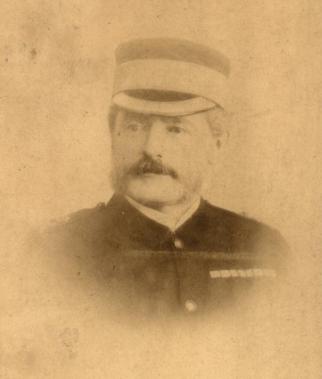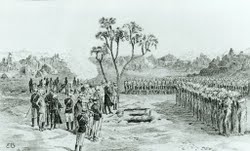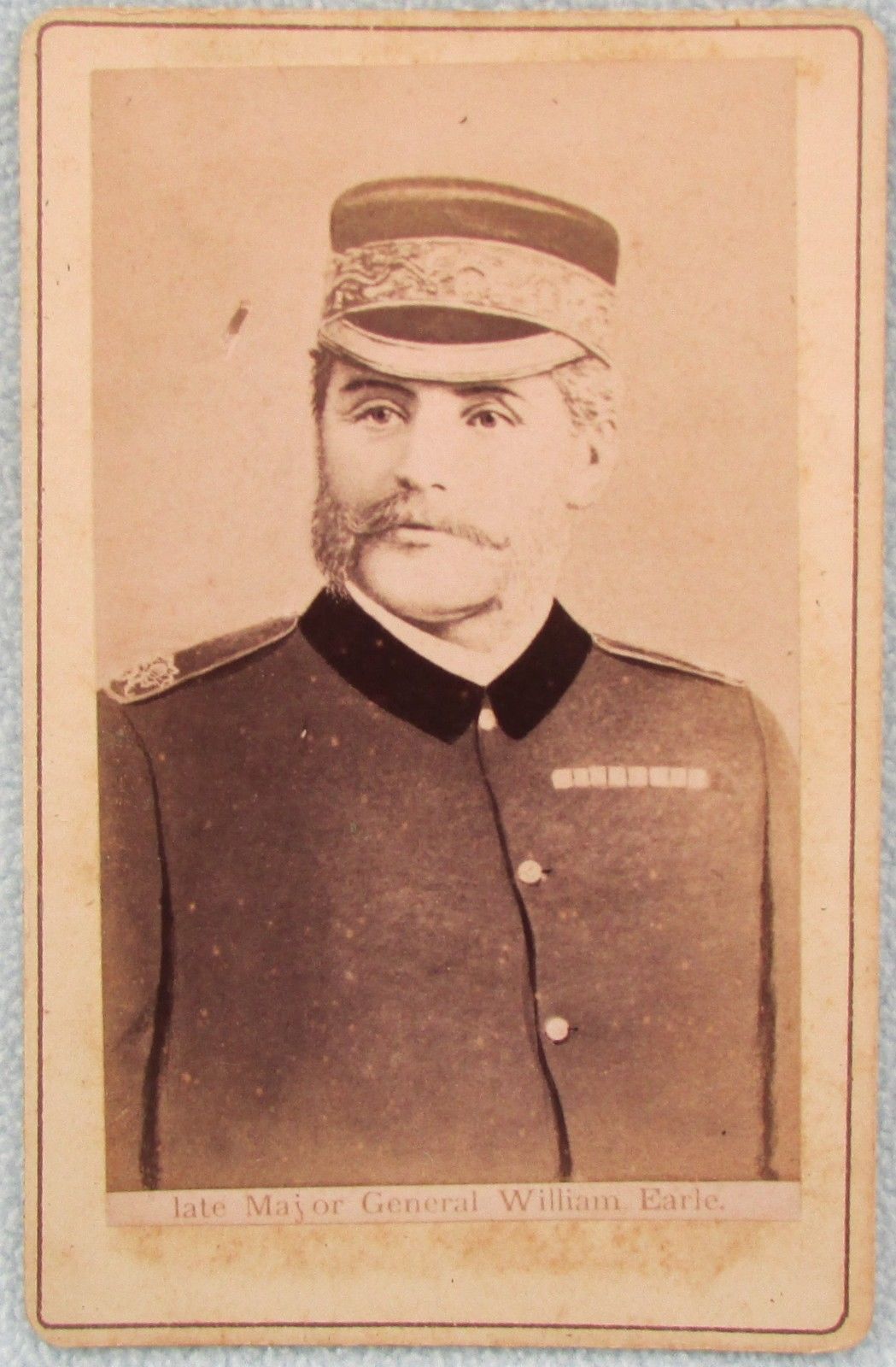Notice of his death was reported in "The Guardian," Wednesday, February 18, 1885:
""Major-General William Earle, C.B., C.S.I., third son of the late Sir Hardman Earle, was born on the 18th of May, 1833. He was educated at Harrow, and entered the army as an ensign in 1851, obtaining a lieutenancy in 1854, and was promoted to captain in 1855. He served with the 49th Regiment in the Crimea, taking part in the battles of Alina and Inkerman and the siege of Sebastopol, including the sortie of the 26th of October and the assault of the Redan. Towards the close of the campaign he acted as aide-de-camp to the Chief of the Staff. In 1857 he was transferred to the Grenadier Guards, becoming, in 1863, captain and lieutenant-colonel. He was promoted to a colonelcy in 1870, and obtained the rank of major general in 1880. He was Assistant Military Secretary at Gibraltar in 1859-60, Brigade-Major in Canada in 1862-3, Military Secretary in British North America 1865-70, and in 1872-6 was employed as Military Secretary to the Governor-General of India (Lord Northbrook). For a short time in 1880 he was colonel on the staff of the Chatham district, and subsequently, till March, 1881, commanded the South-Eastern District at Shorncliffe. In August, 1882, he was appointed Brigadier-General to the expeditionary force to Egypt, commanded the base and line of communication, and was present at the battle of Tell-el-Kebir. General Earle was in command of the garrison of Alexandria from 1883 until called out to accompany the Nile expedition sent to attempt the relief of General Gordon. He married, in 1864, Mary, daughter of General Sir W.J. Codrington, G.C.B. The news of General Earle's death was received with extreme and general regret in Liverpool, where the family have lived for many generations."
Notice of his death was reported in "The Guardian," Wednesday, February 18, 1885:
""Major-General William Earle, C.B., C.S.I., third son of the late Sir Hardman Earle, was born on the 18th of May, 1833. He was educated at Harrow, and entered the army as an ensign in 1851, obtaining a lieutenancy in 1854, and was promoted to captain in 1855. He served with the 49th Regiment in the Crimea, taking part in the battles of Alina and Inkerman and the siege of Sebastopol, including the sortie of the 26th of October and the assault of the Redan. Towards the close of the campaign he acted as aide-de-camp to the Chief of the Staff. In 1857 he was transferred to the Grenadier Guards, becoming, in 1863, captain and lieutenant-colonel. He was promoted to a colonelcy in 1870, and obtained the rank of major general in 1880. He was Assistant Military Secretary at Gibraltar in 1859-60, Brigade-Major in Canada in 1862-3, Military Secretary in British North America 1865-70, and in 1872-6 was employed as Military Secretary to the Governor-General of India (Lord Northbrook). For a short time in 1880 he was colonel on the staff of the Chatham district, and subsequently, till March, 1881, commanded the South-Eastern District at Shorncliffe. In August, 1882, he was appointed Brigadier-General to the expeditionary force to Egypt, commanded the base and line of communication, and was present at the battle of Tell-el-Kebir. General Earle was in command of the garrison of Alexandria from 1883 until called out to accompany the Nile expedition sent to attempt the relief of General Gordon. He married, in 1864, Mary, daughter of General Sir W.J. Codrington, G.C.B. The news of General Earle's death was received with extreme and general regret in Liverpool, where the family have lived for many generations."
Family Members
Advertisement
Records on Ancestry
Advertisement









